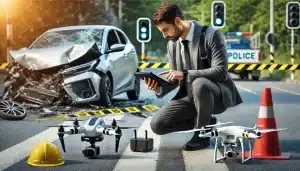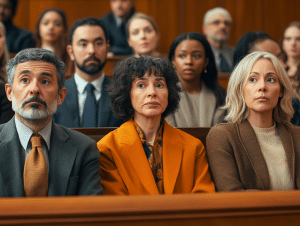When pursuing a personal injury claim, evidence is everything. While witness testimonies, medical records, photographs of damages, and accident reports are crucial, many cases require additional expert analysis to establish liability, prove damages, or refute opposing arguments. This is where expert witnesses play a pivotal role—their opinions can be the difference between winning and losing a claim.
Why Are Expert Witnesses Important?
Not all personal injury cases require expert testimony. However, when liability is disputed or damages are complex, an expert witness can:
- Explain and simplify technical aspects for the judge or jury.
- Bolster a claim by providing objective, authoritative opinions.
- Counter the defense’s arguments when they challenge the case.
- Advance economic loss claims by estimating future medical costs or lost earning potential due to injuries.
Insurance companies often downplay injuries, shift blame, or undermine harms—a strong expert witness can counter these tactics and persuade the jury. Even in seemingly straightforward cases, a medical expert is often required to substantiate the need for medical treatment and reasonableness of the medical bills.
Who May Be Qualified as an Expert?
Oregon Rules of Evidence 702 and 703 provide the framework for determining who qualifies as an expert. Expert witnesses are professionals with specialized knowledge in fields such as medicine, engineering, accident reconstruction, forensics, and economics. Their testimony helps the jury understand complex evidence presented at trial.

An expert’s qualifications may be based on:
- Education
- Skills
- Experience
- A combination of any of the above
Ultimately, the court decides whether a proposed expert has the requisite qualifications to testify. The ideal expert will have strong academic credentials, extensive experience, an unblemished reputation, be comfortable on the witness stand and have the ability to communicate effectively with a jury.
Types of Expert Witnesses in Personal Injury Cases
There are as many types of expert witnesses as there are types of personal injury claims. The goal of every personal injury case—whether it involves a car accident, bicycle crash, slip and fall, dog bite, medical malpractice, trucking accident, or defective product—is to obtain just compensation for the victim. However, each case may require an expert from a different discipline.
Here are some of the most common expert witnesses used in personal injury cases:
1. Medical Experts
A medical expert—such as a doctor or surgeon—can explain:
- The severity of injuries and the required treatments.
- How the accident caused the injury, linking it to the defendant’s negligence.
- The long-term impact on the victim’s quality of life and ability to work.
Example: A neurologist testifies that a car accident victim’s concussion led to permanent cognitive impairment.
Often, a treating physician is the best medical expert. However, if they are unavailable, unwilling, or unable to testify, the injured party may need to hire an independent medical expert.
2. Accident Reconstruction Experts

When liability is disputed, accident reconstruction specialists analyze:
- Vehicle damage, road conditions, and other physical evidence to determine how the accident occurred.
- Skid marks, surveillance footage, black box data, and traffic controls to reconstruct the event.
- The speed and impact forces involved.
Sometimes, biomechanical engineers are hired to examine property damage and render an opinion on whether the forces of impact could have caused the claimed injuries.
Example: An accident reconstruction expert uses physics-based modeling to prove that a truck driver was speeding before the crash.
3. Economic & Vocational Experts
If an injury reduces a person’s ability to earn income, financial experts can calculate:
- Lost wages due to missed workdays.
- Reduced earning capacity if the victim can no longer perform their previous job.
- The lifetime cost of medical care, including surgeries and therapy for permanent injuries.
- The cost of household services such as cooking, cleaning, yard work, and home maintenance that the victim was previously able to perform.
Example: An economist testifies that a construction worker who lost mobility in one arm will suffer a $500,000 lifetime income loss.
4. Engineering & Safety Experts
If an injury involves defective products, structural failures, or workplace hazards, engineers can analyze:
- Defective machinery that contributed to an injury.
- Safety violations at a workplace or construction site.
- Building code violations that led to hazardous conditions.
Example: A structural engineer testifies that a poorly maintained staircase in violation of safety codes caused a slip-and-fall incident.
How Expert Witnesses Strengthen Your Case
1. They Provide Credibility
Judges and juries often trust expert testimony because it comes from professionals with years of specialized experience. This is why an expert’s integrity and reputation are crucial.
2. They Explain and Simplify Complex Concepts

A jury may not understand brain injuries, accident physics, or economic damages, but an expert can break these topics down into clear, layman’s terms. The mark of a good expert is one that has the jury’s undivided attention as they educate them on relevant, often complex concepts.
3. They Challenge the Defense’s Arguments
If the defense presents their own experts to dispute a claim, the plaintiff’s attorney can use rebuttal experts to counter their testimony. Experts can also help attorneys prepare effective cross-examinations against the defense’s experts.
In high-stakes cases, expert testimony can mean the difference between a small settlement and full compensation.
Final Thoughts: Do You Need an Expert Witness for Your Case?
At Shlesinger & deVilleneuve, we work with top medical, accident reconstruction, and financial experts to build the strongest possible case for our clients.
If you’ve been injured and need aggressive legal representation, we’re here to help. Contact us today for a free consultation. Let Us Fight For You!
